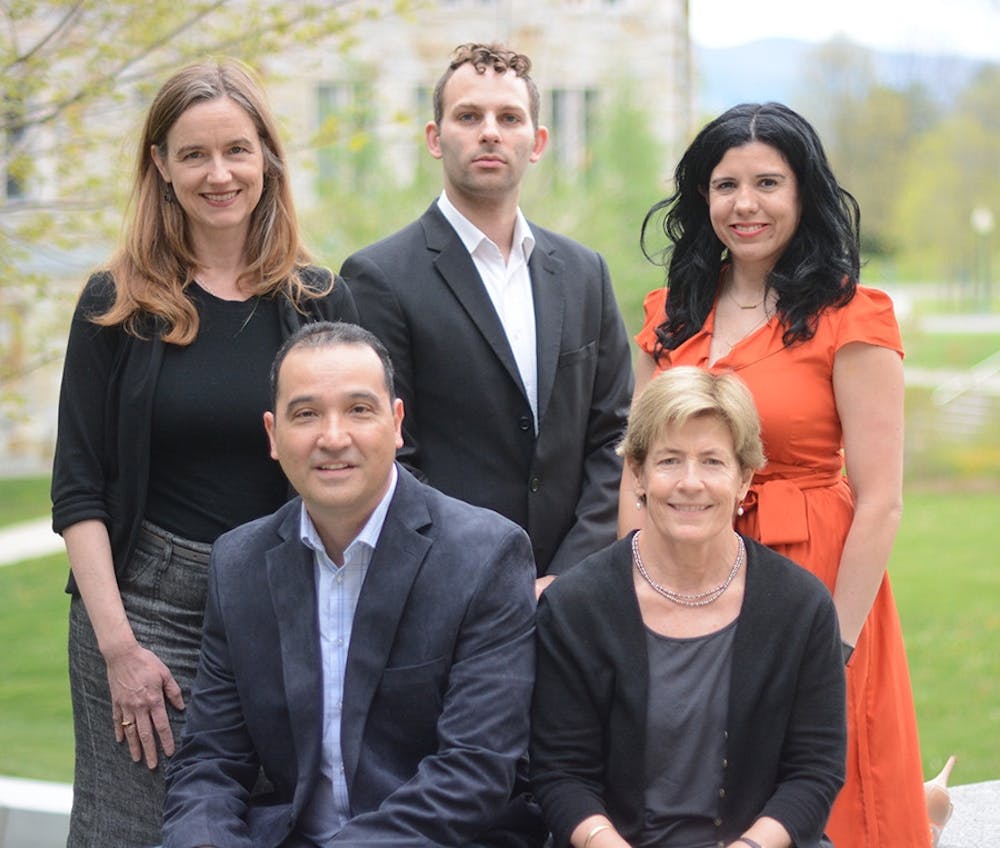On May 26, the College announced that six faculty members had been granted tenure, marking their promotions from assistant to associate professor.
The newly-tenured faculty are Leticia Arroyo Abad in the Economics Department, Mario A. Higa in the Portuguese Department, Marta Manrique-Gómez in the Spanish Department, Marybeth E. Nevins in the Anthropology Department, Edward A. Vazquez in the History of Art & Architecture Department and Linda E. White in the Japanese Studies Department.
In the College’s press release on May 26, Andi Lloyd, Vice President for Academic Affairs, described Arroyo Abad as a “leading scholar of the economic history of Lat-in America and the Caribbean,” was praised for being “a dedicated teacher who strives to foster in her students the core liberal arts capacities of critical thinking skills, constructing and evaluating arguments and assessing empirical evidence.”
In an email to the Campus, Arroyo Abad explained the significance of tenure to her own life as an academic.
“Tenure gives you freedom, freedom to adopt different teaching strategies and explore risky research opportunities,” Arroyo Abad said. “Tenure can also mean sharing your true voice and place in this community and beyond.”
“After all these years I have learned how my identities as a Latina, as an economist, as a histori-an and as a foreigner create unique spaces and dynamics in the classroom and in the community,” she wrote. “Hence, those challenges (and opportunities) still continue and the stress does not disappear.”
Arroyo Abad added that she hopes to utilize her increased free time to write a book, audit classes, and develop more inclusive pedagogies.
Higa was credited in the press release for his “deep knowledge of the literature of Portugal and Brazil.”
Lloyd commended him for “creating an atmosphere of infectious enthusiasm that motivates students to learn.”
Like Arroyo Abad, Higa wrote that increased free time may be the biggest boon of his newfound position.
“Before tenure, everything is provisional,” Higa said in an email. “You cannot think in terms of long-time projects. Now that I received tenure, I am able to look further down the road and plan my academic life accordingly.”
In terms of his day-to-day teaching duties, Higa foresees little change. “Although teaching is tied to my research, I have class tomorrow and I am worried about my current students,” he wrote. “I want to provide them with the best of my abilities as an instructor.”
Vazquez, applauded by Lloyd for his expertise in the history of sculpting and for “his ability to provide lucid explanations of difficult and abstract material,” also expressed a feeling of increased freedom.
White wrote in an email, “Tenure provides a certain level of employment security and it establishes a kind of continuity through time for students, faculty and the institution as a whole.”
Manrique-Gómez is the author of multiple books on Spanish literature, and was described by Lloyd as “a compassionate and understanding professor who fosters an environment in which all students are encouraged to participate in discussions, strive for deeper understanding and make linguistic achievements.”
Nevins is an expert in several indigenous languages, and drew praise for her knowledge, patience, accessibility and “contagious passion for linguistic anthropology,” according to Lloyd.
In an email to The Campus, Lloyd elaborated on the importance of tenure as an institution, as well as which qualities stood out amongst this year’s promoted faculty.
“Each of these newly tenured faculty members embodies the ideal of a teacher-scholar,” she said. “They are recognized by colleagues here and by scholars outside the institution, as having made important contributions to their field as scholars.”
Six Faculty Gain Tenure

Comments



